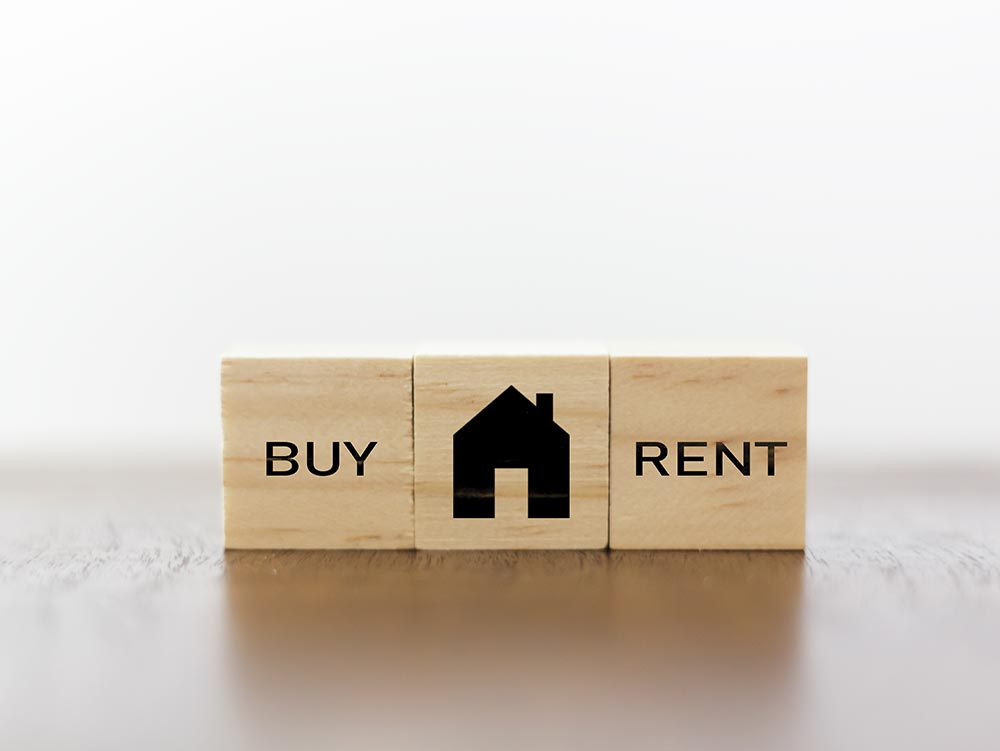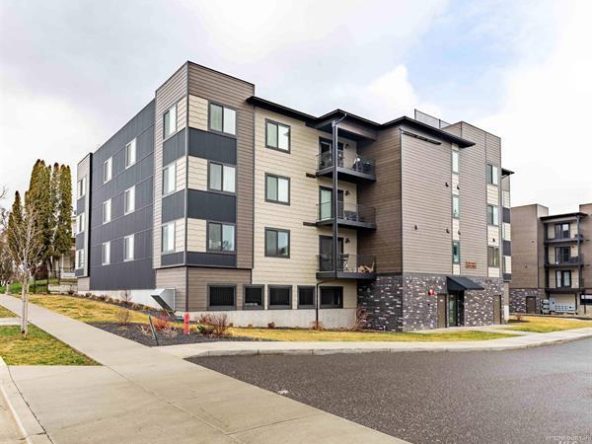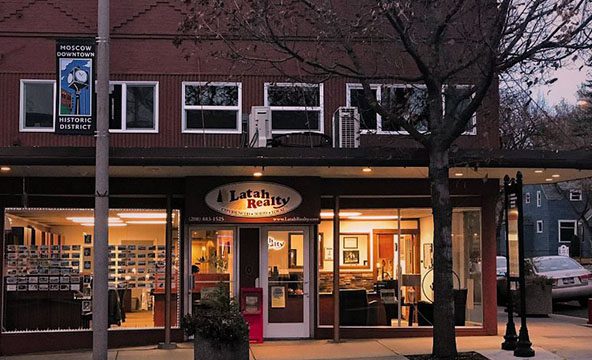Choosing whether to rent or buy a home is a big decision that can affect many aspects of one’s life, especially financial health.
Some initial questions to think about before making that decision are:
- How long are you planning to stay in one area?
Market trajectory can dictate a lot of whether it makes sense to rent or buy. Generally, if you are planning on sticking around for more than 3 years, buying a house might be a good option. However, if you prefer more mobility or are planning on moving in the next few years, renting could work better.
- How much flexibility do you need, and in what way?
More flexibility to move around, or more flexibility to alter your space?
- What responsibilities are you willing to take on?
Buying a house means that you must take on maintenance and care that a landlord would most likely include as part of the rent. Fixing big problems like roofing or plumbing can be very costly and should be considered when purchasing a property.
Initially, there are different requirements for renting and buying. Typically buying a house includes a few more steps. Rentals typically require some sort of application which may have a fee and they may run a background check. Also, many rentals do not allow animals, and if animals are allowed there are often fees associated upfront like a security deposit and possibly a monthly fee attached to rent. Paying a security deposit for the apartment itself is also a norm when renting. At some point you will have to sift through and sign leasing paperwork as well.
Buying a house often requires getting in touch with and working with a real estate agent to help navigate paperwork as well as the buying process. Buyers most likely want to do walkthroughs of a property which can be time consuming. If you do not plan to buy in cash, you will need to work with a lender to provide a mortgage to cover the rest of the cost not included in the down payment. Buying typically is more time consuming, sometimes taking months to complete.
Besides the initial hoops to jump through, there are quite a few pros and cons to renting and buying.
Renting
Renting can offer more flexibility to move and might be a great option if you are not interested in putting down roots in one area. The renting process tends to be more simple and less expensive up front than buying a home. Landlords often handle repairs when requested to, and often rent covers the cost of maintenance. However, landlords are not always as responsive as renters would like and sometimes the repairs are not done well or not at all. Many apartment complexes also have community rules listed in the lease that can sometimes feel restrictive.
Sometimes these restrictions apply to pets or specific breeds of dogs. Other restrictions might include limiting the number of guests a renter can have over and how long they can stay or having quiet hours at certain times. Renters also live in close quarters near their neighbors, which can cause issues sometimes. Moving out can also be a hassle and cost more than expected if there are damages to the apartment.
Regardless of the cons, renting is a great option for people who require more mobility and can be a less expensive option in the long run depending on the cost of rent. Contrary to popular belief, house values are not guaranteed to increase over time, so renting can save money. Determining what is most important for your financial health can help you make this decision.
Buying
Owning a home is engrained in American culture as part of the “American dream.” There is a sense of pride and ownership that comes with owning a home. Buying a home also comes with its own set of problems and benefits. One benefit is that many homes are part of a larger community, which can add great value. Some communities have a Homeowner’s Association that require homeowners to pay monthly dues (this can be expensive), but they might take care of some chores that a landlord would help with if you were renting an apartment. Being a part of a community and owning a home can also provide a sense of stability. If a homeowner has a fixed-rate mortgage, this can keep monthly costs low and predictable, which also contributes to that sense of stability.
Sometimes owning a home can get owners tax deductions or help them gain equity. Equity is the difference owed on a mortgage versus what your home is currently worth; however, value in a home does not always increase. For example, if a homeowner owes $150,000 left on their mortgage, but their home is worth $200,000 they have $50,000 in equity. In other words, if they sold their home, they could potentially make a profit of $50,000. But if the value goes down on the home depending on the market and other factors like a lack of renovations and repairs, homeowners might leave with less money than they started out with.
Another important part of owning a home is that you must handle repairs by yourself or hire someone to help. Depending on what those repairs or renovations are, this can be time-consuming and costly. Also, sometimes renovations do not add much to the value of a home, despite the cost and effort.
But having more freedom and being a part of a community might outweigh the pros and cons of renting an apartment.
Latah Realty Broker and Co-Owner, Sean Wilson, said, “It’s liberating to own your own home. You don’t have to ask your landlord to get a pet or hang something big on the wall…or tear down the wall!”
It all comes down to long-term goals and values. There are many ways to make the home buying process less complicated, and the help of a realtor is beneficial when deciding what is right for you.
To speak with a realtor today, call our office at 208-883-1525 or email [email protected].




